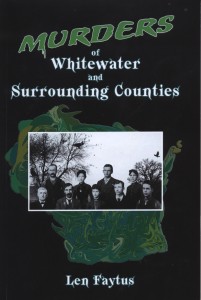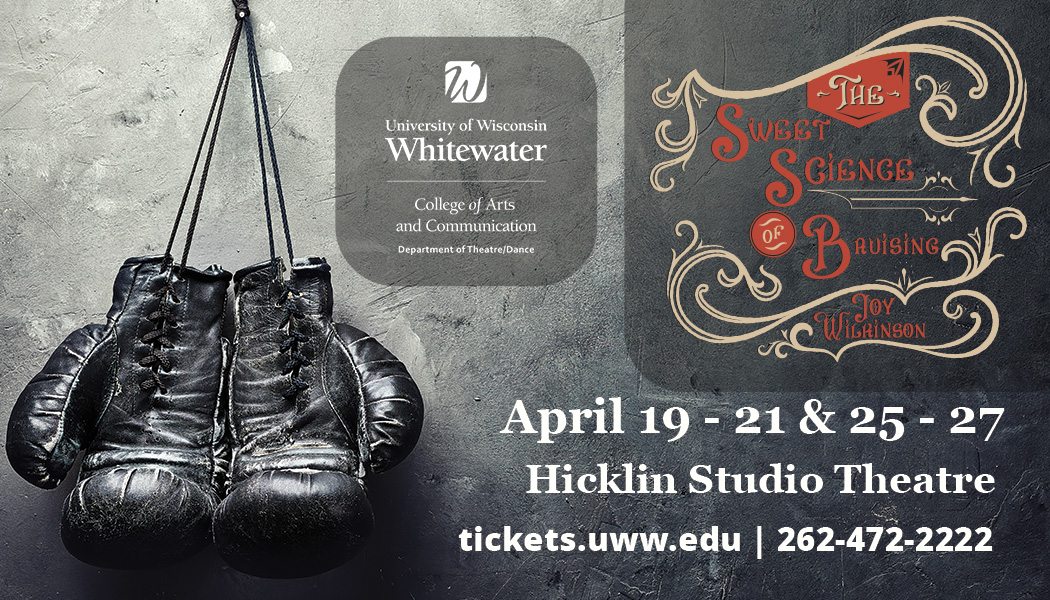Local author preserves some of Whitewater’s more scandulous pieces of history in new book
Nov. 13, 2013
By Samantha Jacquest
Many people think nothing interesting happens in small towns. Especially in Whitewater, with thousands of students coming and going every year, much of the local history can be overlooked.
But local author Len Faytus aims to educate the people of Whitewater about the city’s

interesting past in his first book, “Murders of Whitewater and Surrounding Counties.”
When he’s not busy working his daytime construction job, Faytus researches local history, tracking down names that no one alive remembers, addresses that no longer exist and cases that have not been spoken of in more than 100 years. “Murders of Whitewater and Surrounding Counties” covers murders in the 1800s.
Faytus will host a book signing from 6 to 8 p.m. on Dec. 2 at the Irving L. Young Memorial Library.
“Murders of Whitewater and Surrounding Counties” is sold at many local establishments, including the University Bookstore, several bookstores in Janesville and other area cities.
The Royal Purple got a chance to talk with Faytus about his first book and what can be expected in the future.
Royal Purple: On average, how many hours did it take for you to research one case?
Len Faytus: Five to 10 hours to get the main gist of the story, and then if you really want to

find little detailed information, like sometimes finding a person’s full name could take 20 to 30 hours just for that. The little details are what takes the most time. But then sometimes I’ll be working on one story, and I’ll come across stuff that was pertinent to another story. You have to have all the feelers out all the time.
RP: Which of these cases did you find the most interesting to research?
Faytus: Nelly Hurran was accused of poisoning her sister Annie Hurran where the parking lot of the First Citizens State Bank now is – that’s where their rental house was. That, to me, was the most exciting story, because that hit national news in December 1884. The evidence was very descriptive. It had so many articles that I could pretty much describe her last two or three days almost by the hour. I used everything to research that was logical to use, including cemetery records. I looked at deeds, death certificates, birth certificates, censuses, everything.
RP: Even though these murders
occurred over 100 years ago, was it hard to write some of them?
Faytus: Yeah, some of them were, especially the Finch story, who was born in Richmond, raised in Whitewater and was fatally stabbed at a dance in Janesville. He was at a dance, everyone’s having a good time, and when he was stabbed a lot of people saw but didn’t really see what was going on. It was supposed to be a festive time, so it was kind of hard. But you have to keep reminding yourself, ‘Well, it happened over 100 years ago and he would be dead now anyway,’ and that’s how it is for a lot of the stories. Some bothered me more than others.
RP: What were some of the challenges with writing this book?
Faytus: I always wanted to write novels. I’ve written quite a few then thrown them away when they were done. But this was different, this was much more challenging; it’s easier to make stuff up. If I couldn’t find the information, then I didn’t put it in the book. If I couldn’t find an age or something, I wouldn’t include it. It didn’t happen too often for this book, I was always lucky and something broke; I got a name, an age, date or address. Some of the addresses were really hard to pin down, because they’re not around anymore, and some of them were vague descriptions because no one knew where they were in the 1800s, so I spent a lot of time finding out where things happened.
RP: How do you feel now that the book is published?
Faytus: It was fun to do. It seemed to write itself; when I started writing the stories, it seemed like I couldn’t type fast enough to keep up with it. It felt like the story was telling me where to go with and how to arrange it. I guess the stories just wanted to be told.
Faytus is working on two more books: one will focus on murders from 1900 to 1925, with a special focus on Prohibition and the Ku Klux Klan; the second is a history of Morris Pratt and the Morris Pratt Institute and its connection to local supernatural legends. Faytus says he hopes both books will be published sometime in December or January.












